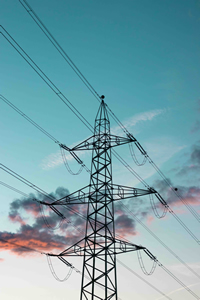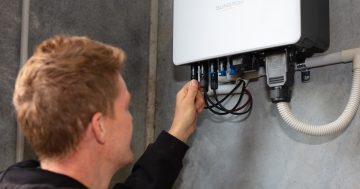Stephen Layton* has some simple tips for reducing soaring energy and water bills.
 Keeping the lights on isn’t cheap — never mind the air conditioning and hot water heater.
Keeping the lights on isn’t cheap — never mind the air conditioning and hot water heater.
Tweaking your usage can lower your electricity bill by as much as 25 per cent.
Keep reading to find out.
Home heating and cooling are 10 of the biggest culprits behind hefty utility bills — and the best places to look for cost-cutting opportunities.
Check seals on windows, doors and appliances:
Make sure your fridge and freezer are well sealed to keep the cold air where it belongs.
Same goes for your doors and windows.
A bad seal allows energy to seep out, draining your wallet in the process.
Fix leaky ductwork:
Improve the efficiency of your heating and cooling systems by repairing leaky heating, ventilation and air conditioning ducts.
Give your thermostat a nudge:
Set your thermostat back when you’re asleep or away from home.
Doing so for eight hours can lower your annual heating and cooling costs by around 10 per cent.
A programmable thermostat will do the work for you.
Adjust your fridge and freezer temperature:
Set your fridge to 4°C and your freezer to minus 15°.
This will keep your food fresh, but your fridge and freezer won’t need to work as hard to maintain the temperature.
Hot water is the second-largest expense in powering most homes.
Cutting back on your hot water usage — in the shower, laundry and dishwasher — can make a sizable dent in your overall energy bill.
Take shorter showers:
Trimming two minutes off your shower time can cut your water usage by 38 litres.
Replace your showerhead:
An efficient showerhead can reduce your water usage by more than 10,000 litres per year.
Don’t wash clothes in hot water:
Cut your per-load energy usage in half by sticking to warm or cold water when you do laundry.
Fix leaky taps:
That drip, drip, drip isn’t just annoying, it can waste hundreds of litres of water.
Adjust the temperature on your water heater:
The default temperature setting on water heaters is typically 60°.
Lowering it to 48° can reduce your water heating costs by up to 10 per cent.
Leaving town for a few days? Turn your water heater to the lowest setting to conserve energy usage.
Purchase energy efficient appliances:
If you’re in the market for a new washing machine, dishwasher or water heater, buy an energy efficient model to yield long-term savings.
Keeping the lights and electronics on accounts for roughly 12 per cent of a home’s energy usage.
Swap your light bulbs:
Make sure your bulbs are the newest and most energy efficient.
Install dimmer switches:
Dimmers let you set the brightness in a room to suit your needs, setting the mood and saving electricity.
Use smart power strips:
Some electronic gadgets never truly power off; instead, they sit in standby mode using a trickle of power that can add up over time.
These are usually, but not exclusively, items with a remote control, because the remote sensor needs power while waiting for your input.
Plug these electronics into a smart power strip, which cuts off the current when the devices aren’t in use.
Do an energy audit:
Utility providers will often conduct a home energy audit, sometimes for free.
They can identify additional ways to reduce your energy usage.
*Stephen Layton is a personal finance writer at NerdWallet.
This article first appeared at www.nerdwallet.com.







